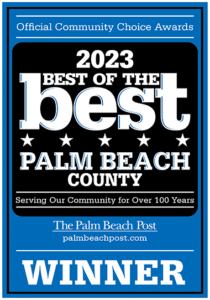None of us wants to think about dying, but making hard decisions about who gets what stuff, documenting the necessary paperwork, creating a will and registering it is the responsible and brave thing to do for the people you love. Leaving it up to grieving loved ones to guess what you would have wanted is difficult and can create a lot of strife in families. Astonishingly, a 2016 Gallup Poll survey found that only 44 percent of Americans have a will, and other research shows that 67 percent of the wills created are never found. People spend thousands on estate planning, taking the time to work with attorneys to carefully allocate assets and select beneficiaries, yet often do not disclose the location of the most current will (or its duplicate) or the name of the attorney who put it together.
Talking about wills and estate planning while loved ones are still with us is considered taboo by many, and when asked about, many people get suspicious of the inquirer’s intent. However, if a person dies and a will is not found within six months, the intestate succession laws decide which family members will inherit the estate. If there is no living family, the government will collect the assets. For these reasons, it is not only important to have a will, but also to register it so that people will know where to find it when you pass.
Registering your will in the United States is easy, free and does not require the submission or storage of any pertinent personal information. When registering, simply visit www.theuswillregistry.org and disclose your name, address, birthdate and the location of the original and duplicate copy of the will. The site does not keep a physical copy of the will, but will ask you who has the rights to see the information you provided regarding the location of the will. Only those listed will have access to the information. In addition, to receive this information, the people or person seeking the will must present a death certificate and ID to be reviewed by a legal team before dispersing any information regarding the will. In this registry, people may register their own wills and attorneys may register the wills of clients. There is also a database for lost wills. The site has been active since 2002, and millions of wills are registered. The database is searchable by the public for family members that are searching for a missing will.
At senior living communities such as La Posada, a Kisco Senior Living community located in Palm Beach Gardens, residents are actively taking the right steps to ensure estate planning is taken care of and that their wills are registered and updated when major life events take place. While no one wants to think about their life ending and their assets being distributed, it’s crucial to take these necessary steps in order to clearly communicate your desires.
“Outside of reducing family conflict and avoiding intestate succession laws, there are several good reasons for creating a will, such as: determining who will be the executor to wrap up the estate, naming guardians for children or pets, creating trusts, forgiving debts, disinheriting individuals, avoiding a lengthy probate process, minimizing estate taxes and making gifts or donations,” said Brad Cadiere, executive director of La Posada. “A will is a way to make sure your wishes are followed without leaving it up to others to assume what your decisions might have been. We are looking at providing some opportunities for residents to learn even more about wills and their registration.”
“Having a will is especially important for people with multimillion-dollar estates, disabled children with special needs trusts, blended families, property in foreign countries family businesses,” said Stacey Miller, founder of The U.S. Will Registry. “When there is a new spouse or different children with different spouses, it becomes increasingly important to lay out your plan instead of leaving it up to speculation. For example, a child you have not heard from in 20 years may end up being the sole beneficiary in place of the stepchildren who are actively involved in your life if you do not have a will or they cannot find it. Where there is a will, there’s a way for those left behind to have peace of mind.”


